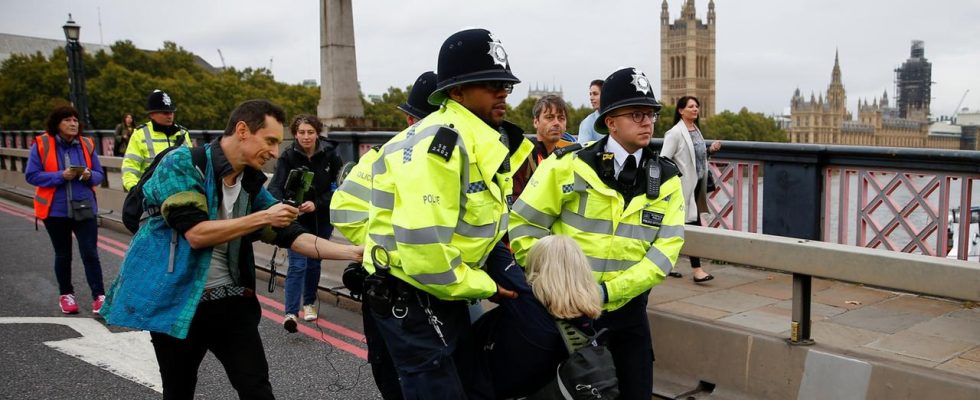Unreasonable searches and a ban on certain forms of protest – in the future it should be possible to take tougher action against demonstrators in Great Britain. The UN speaks of a “deeply worrying” law.
The British Parliament has approved restrictions on the right to demonstrate. Police powers will be expanded in the future. The law stipulates that police officers in designated areas will in future be able to stop and search people without suspicion. If necessary, they should secure items that can be used for “protest-related” offences. Forms of protest such as sticking and chaining, which the government has criticized as “disruptive and dangerous so-called guerrilla tactics,” will be punished in future.
Criticism by the UN and Amnesty International
The UN High Commissioner for Human Rights, Volker Türk, called on the British Conservative government to reverse the “deeply worrying” law. It is not compatible with the country’s international human rights obligations regarding freedom of expression or the right to peaceful assembly.
Human rights organization Amnesty International fears the law could deter people from taking part in demonstrations. Protests are part of the foundation of an open society, said Oliver Feeley-Sprague of Amnesty International UK. “Preventing people from telling the truth to those in power is effectively silencing discontent and brazenly preventing anyone from holding the powerful accountable.” According to Feeley-Sprague, Great Britain is slipping further towards authoritarianism with such laws.
The climate protectors from Extinction Rebellion had disrupted public life with protest actions, especially in London in 2019.
Law is a reaction to climate protests
The government, on the other hand, speaks of a project that will preserve the right to demonstrate. At the same time, the “law-abiding majority” is protected from disabilities in everyday life. The project was designed by former Home Secretary Priti Patel. It was a response to large street protests by climate activists like Extinction Rebellion.

